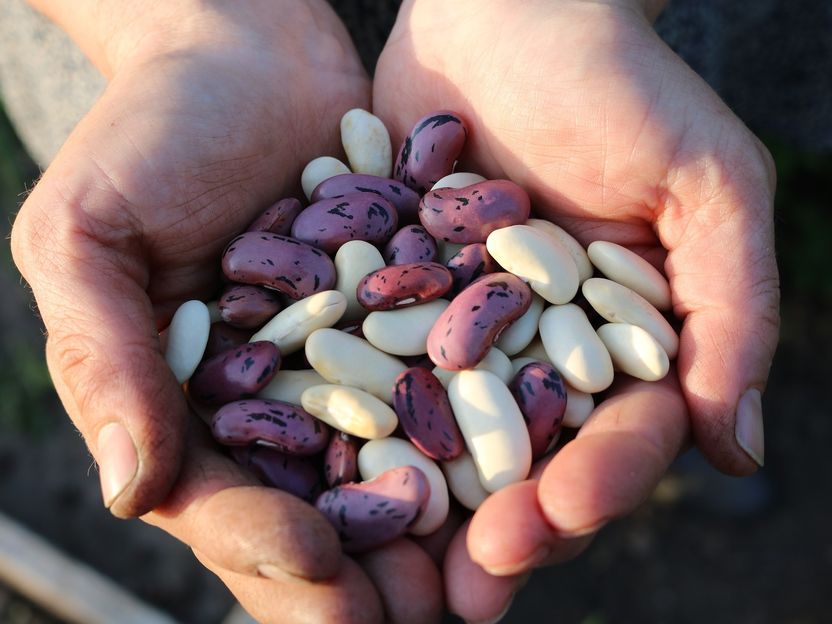Protein supply of the future - Healthy and climate-friendly
Valuable protein alternatives have hardly been exploited to date
Advertisement
Pulses from domestic arable land, fish from sustainable aquaculture and insects from professional breeding systems offer great potential to meet the protein requirements of the future in a way that is both healthy and climate-friendly. Nevertheless, valuable protein alternatives have so far hardly been exploited and have received too little political support. The DIfE and the Potsdam Institute for Climate Impact Research, together with other member institutes of the Leibniz Research Network "Sustainable Food Production and Healthy Nutrition", have now published a position paper on how to deal with the growing protein demand of the world population.

Pexels / Pixabay
"What we eat and how much we eat has an enormous effect on our health. At the same time, nutrition also makes a decisive contribution to climate change," says Professor Susanne Klaus, head of the Department of Physiology of Energy Metabolism at the German Institute of Human Nutrition Potsdam-Rehbrücke (DIfE). Certain foods harm humans and the environment more than others. For example, beef is considered a carcinogenic "climate killer". On the other hand, animal proteins score higher points than plant proteins in terms of quality.
Unity in diversity: systematic discussion of alternative protein sources
In the search for solutions to reconcile healthy protein consumption and sustainable protein production, the Leibniz Research Network "Sustainable Food Production and Healthy Nutrition" invited participants to a consensus workshop in Potsdam. Scientists from seven institutes of the Leibniz Association, the University of Potsdam and the Georg-August-University of Göttingen discussed how the protein requirements of the growing world population can be met in such a way that the health of people and ecosystems benefit equally.
In the present position paper, researchers from the fields of nutritional, agricultural and plant sciences, marine and freshwater ecology as well as insect and earth system research summarised their results. The paper deals with the quality, usability and health effects of various plant and animal protein sources. Since the production of protein-rich food often generates high emissions, the authors also discuss possible alternatives to common dietary protein sources and production systems. These include insects as protein sources or more sustainable aquaculture systems in which nutrients are recycled.
Lessons and gaps in research
But there is still a need for research: "Basically, we need to look not only at the health effects of our food, but also at the indirect health consequences of food production - from overuse of water resources to loss of biodiversity," says first author Dr. Isabelle Weindl of the Potsdam Institute for Climate Impact Research.
Uncertainties also exist with regard to an optimal protein intake for health. "Intervention studies do indeed indicate a health-promoting effect of protein-rich diets under certain conditions, for example in the treatment of obesity. However, epidemiological studies suggest that a low-protein diet has a positive effect on life expectancy and the risk of disease," said Klaus.
The researchers are critical of the fact that promising alternatives to animal protein sources have so far not been sufficiently exploited. In particular, there has so far been too little support from politicians to boost development. "For example, with regard to legumes or insects as protein sources, politics could achieve a lot, for example through the EU agricultural policy," says Weindl.
"Our exchange makes it clear that future strategies for health-promoting food security must always take into account the aspect of environmental sustainability. This also means that we have to get used to a greater proportion of plant-based foods and alternative protein sources and thus change our eating habits," says Klaus. Possible ways to achieve this are far from exhausted. "In general, however, a rethink is necessary. Animal products are not the only way to ensure a high quality of protein. You can also feed yourself very well by cleverly combining plant protein sources," adds Weindl.
Deepening research - winning over stakeholders
The position paper produced in the workshop is intended to be a scientific basis and starting point for interdisciplinary research and answering important open questions. "There is still much to be done! We would like to expand this format to include topics relating to the influence of nutrition on society and the environment. Our aim is to formulate socially relevant research questions and to win over science policy and social stakeholders as supporters of research," says Professor Tilman Grune, Scientific Director of the DIfE.
Three approaches for a future-oriented protein supply:
1. better chicken instead of beef: conversion to more sustainable animal food. While the quality of animal protein sources hardly varies at all, there are major differences in terms of the ecological footprint.
2. mate sensibly: Increase protein content from various plant sources and combine them wisely. Reason: A targeted combination can improve the biological value - i.e. the protein quality.
3. use the entire range: There are numerous expandable options for sustainable protein production for food and feed, including:
- Domestic cultivation of legumes
- Transformation of current mono-aquacultures into multitrophic and integrated production systems that recycle nutrients (keyword aquaponics)
- Alternative protein sources such as insects that have a favourable protein composition and protect the environment
Note: This article has been translated using a computer system without human intervention. LUMITOS offers these automatic translations to present a wider range of current news. Since this article has been translated with automatic translation, it is possible that it contains errors in vocabulary, syntax or grammar. The original article in German can be found here.
Original publication
Weindl, I., Ost, M., Wiedmer, P., Schreiner, M., Neugart, S., Klopsch, R., Kühnhold, H., Kloas, W., Henkel, I. M., Schlüter, O., Bußler, S., Bellingrath-Kimura, S. D., Ma, H., Grune, T., Rolinski, S., Klaus, S.: Sustainable food protein supply reconciling human and ecosystem health: A Leibniz Position. Global Food Security 25: 100367 (2020).
































































